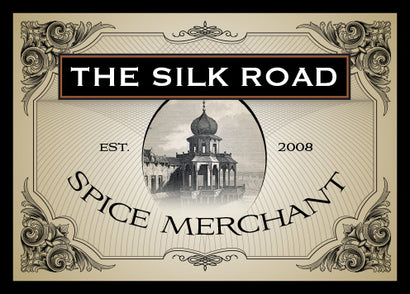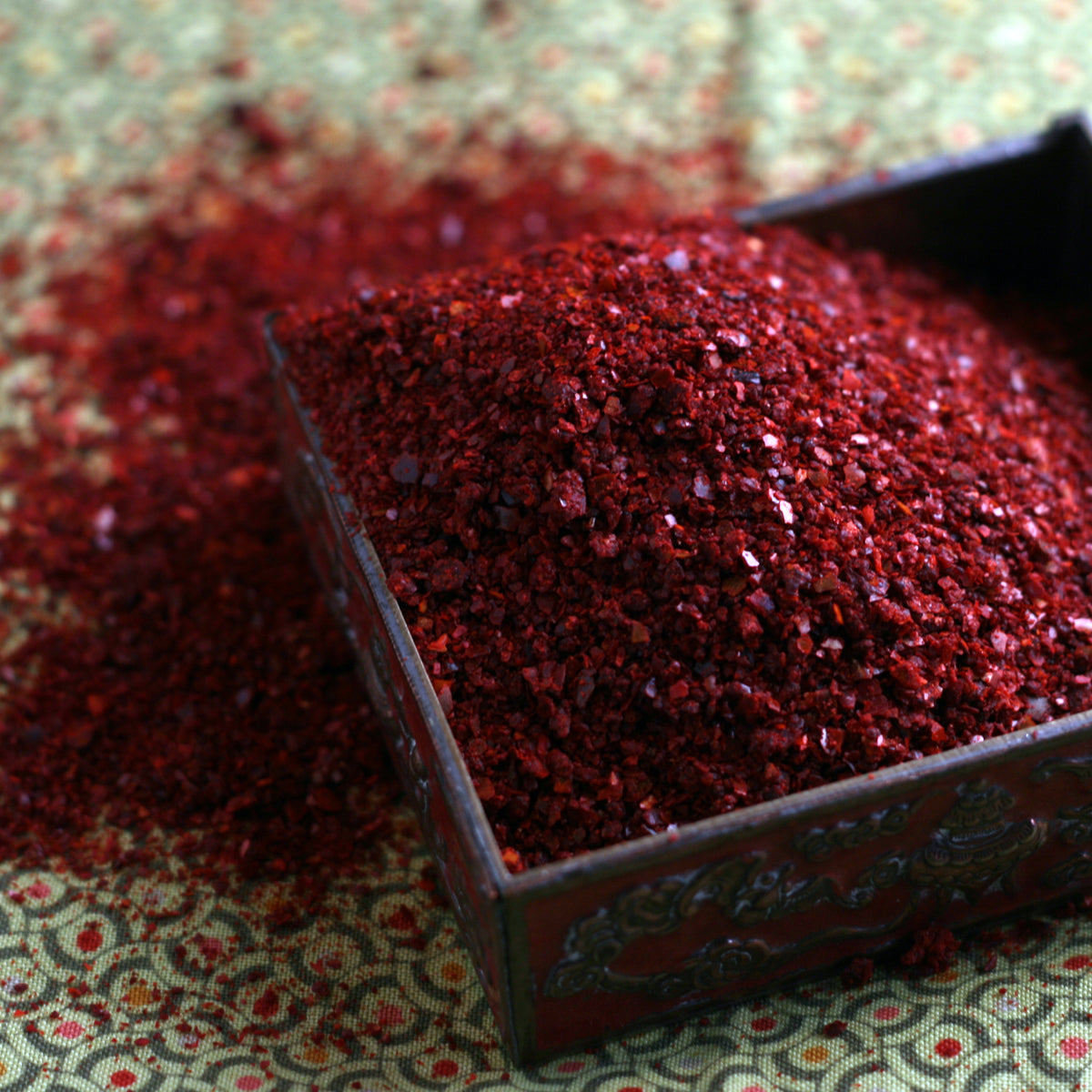Gochu Garu (Korean Chile Flakes)
$8.99 - $31.99
Gochu Garu (or sometimes Kochu Karu) are Korean red chile flakes that are traditionally used in a huge range of dishes. It’s especially called for in kimchi recipes. With a moderate heat level and a bright, fruity flavour, gochu garu is very similar to Aleppo chiles from Syria. Even if you aren’t making Korean food, try these anywhere you’d use regular chile flakes or cayenne pepper for a punchier flavour and a little less heat.
Note: almost all Gochu Garu grown and produced in South Korea is used domestically. The majority of what is distributed around the world (including what we sell) is grown in China.
Heat level: 4 out of 10


